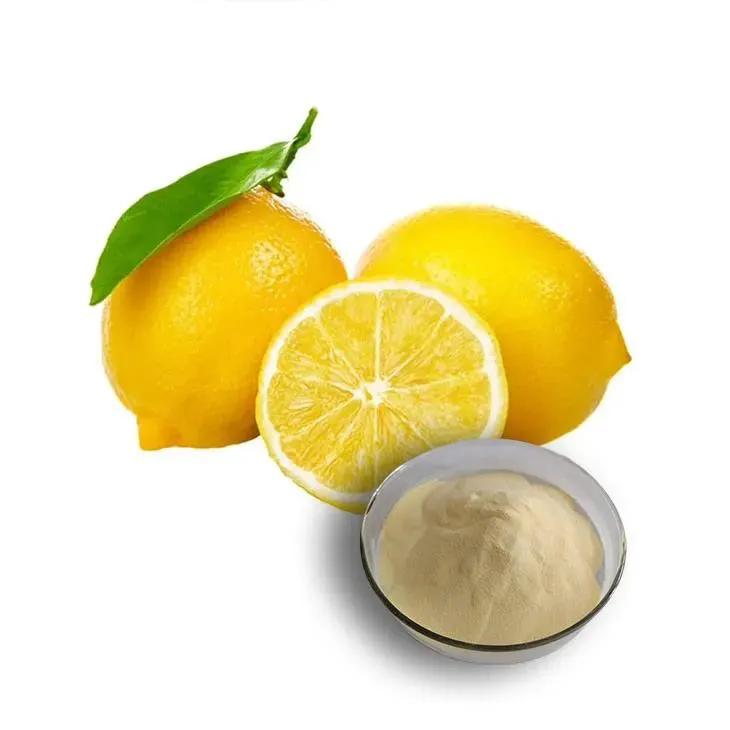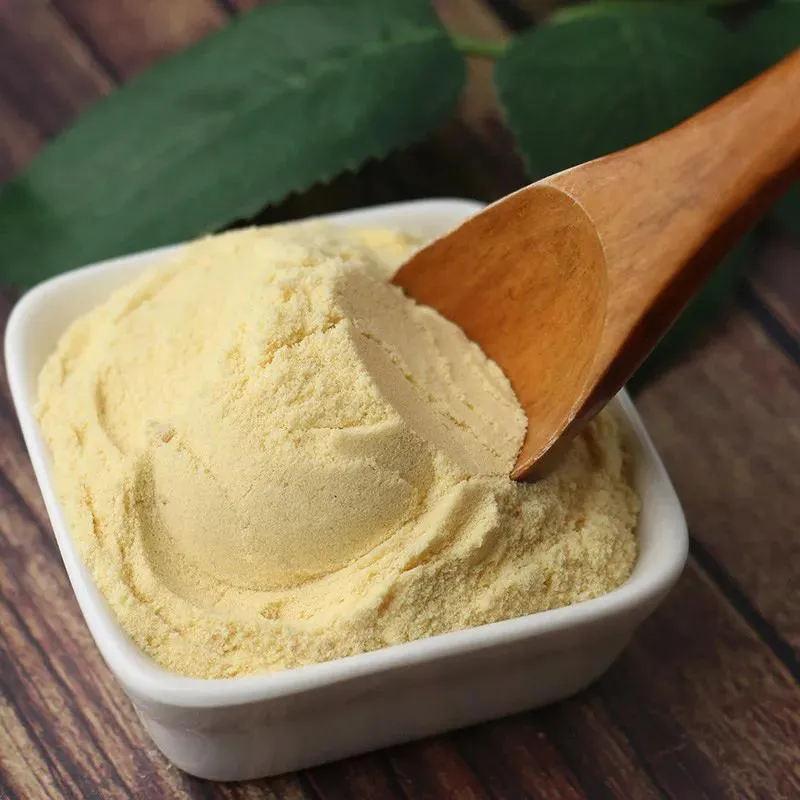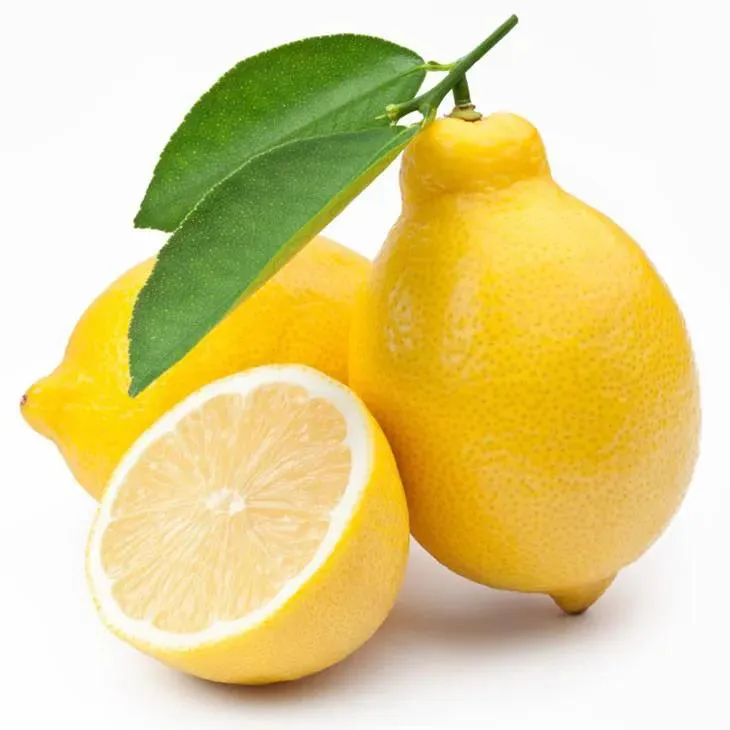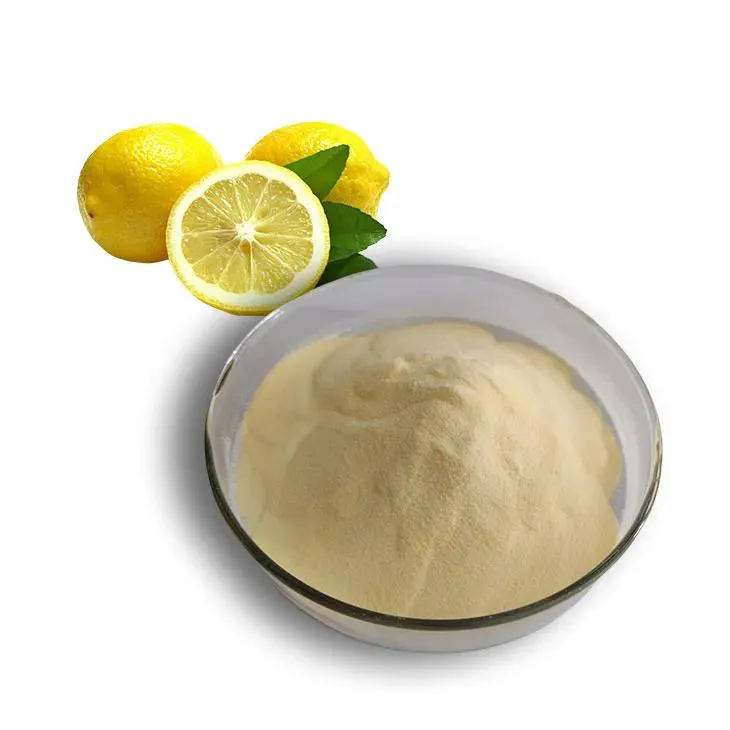- 0086-571-85302990
- sales@greenskybio.com
Lemon Juice Powder Extraction Process
2024-11-30

1. Introduction
Lemon Juice Powder has gained significant popularity in recent years due to its convenience and long - shelf life. It is widely used in the food and beverage industry, as well as in the pharmaceutical and cosmetic sectors. The extraction process of Lemon Juice Powder involves several crucial steps, starting from the harvesting of lemons to the final conversion of the juice into a powder form. This article will provide an in - depth exploration of this process.

2. Lemon Harvesting
The first step in the Lemon Juice Powder extraction process is the harvesting of lemons. Lemons should be harvested at the right stage of ripeness to ensure the best quality juice. Typically, lemons are harvested when they have reached their full size and have a bright yellow color. The harvesting method can vary depending on the scale of production. In small - scale orchards, lemons may be hand - picked, which allows for careful selection of only the ripest fruits. In large - scale commercial operations, mechanical harvesters may be used, although this requires careful calibration to avoid damaging the lemons.
Once harvested, the lemons need to be sorted. This involves removing any damaged or diseased fruits. Sorting can be done manually or with the help of automated sorting machines. The sorted lemons are then ready for the next step in the process.

3. Juice Extraction
3.1. Traditional Methods
One of the traditional methods of juice extraction is manual squeezing. This method involves cutting the lemons in half and then using a hand - held squeezer or simply squeezing the lemon halves by hand. While this method is simple and can be done at home, it is not suitable for large - scale production due to its low efficiency. Another traditional method is the use of a mechanical press. Lemons are placed in a press, and pressure is applied to extract the juice. This method is more efficient than manual squeezing and can be used for small - to medium - scale production.
3.2. Modern Industrial Methods
In modern industrial settings, more advanced juice extraction methods are used. One such method is the use of centrifugal juicers. Lemons are fed into the juicer, and a high - speed spinning mechanism separates the juice from the pulp and other solids. This method is very efficient and can handle large quantities of lemons in a short time. Another method is enzymatic extraction. Enzymes are added to the lemon pulp to break down the cell walls, which makes it easier to extract the juice. This method can result in a higher yield of juice compared to traditional methods.
4. Purification of Lemon Juice
4.1. Filtration
After the juice is extracted, it needs to be purified. Filtration is an important step in this process. The juice may contain pulp, seeds, and other solid particles that need to be removed. Simple filtration methods such as using a fine - mesh sieve can be used for small - scale production. In industrial settings, more sophisticated filtration systems such as membrane filtration or vacuum filtration are used. These methods can effectively remove even the smallest particles, resulting in a clear and pure lemon juice.
4.2. Decantation
Decantation is another purification method that can be used. In this method, the lemon juice is left to stand for a period of time so that the heavier solid particles settle at the bottom of the container. The clear juice on top can then be carefully poured off or siphoned out. This method is relatively simple and can be used in combination with other purification methods.
5. Preservation of Lemon Juice
Before the juice is converted into powder, it needs to be preserved to prevent spoilage. One common method of preservation is pasteurization. Pasteurization involves heating the lemon juice to a specific temperature for a certain period of time to kill any harmful microorganisms. This helps to extend the shelf life of the juice. Another method is the addition of preservatives. Natural preservatives such as citric acid or ascorbic acid can be added to the juice. These preservatives not only help to prevent spoilage but also enhance the flavor of the juice.
6. Drying of Lemon Juice
6.1. Spray Drying
Spray drying is one of the most commonly used methods for converting lemon juice into powder. In this method, the purified and preserved lemon juice is sprayed into a hot air chamber. The hot air rapidly evaporates the moisture from the juice droplets, turning them into a fine powder. The advantage of spray drying is that it is a relatively fast process and can produce a high - quality powder with good flowability. However, it requires specialized equipment and can be energy - intensive.
6.2. Freeze Drying
Freeze drying is another drying method that can be used for lemon juice. In this method, the lemon juice is first frozen and then placed in a vacuum chamber. The ice in the frozen juice sublimes directly from the solid state to the gaseous state, leaving behind a dry powder. Freeze - dried lemon juice powder has a very high quality as it retains most of the nutrients and flavor of the original juice. However, it is a more expensive process compared to spray drying due to the high energy consumption and longer processing time.7. Packaging of Lemon Juice Powder
Once the lemon juice powder has been produced, it needs to be packaged properly to protect it from moisture, air, and light. Packaging materials such as foil - lined bags or airtight containers are commonly used. The packaging should also be labeled clearly with information such as the product name, ingredients, and shelf life. Proper packaging ensures that the lemon juice powder maintains its quality during storage and transportation.
8. Conclusion
The extraction process of lemon juice powder is a complex but well - defined process. Each step, from lemon harvesting to powder packaging, plays a crucial role in ensuring the quality and usability of the final product. With the increasing demand for lemon juice powder in various industries, continuous improvement in the extraction process is essential to meet the market requirements. This includes the development of more efficient and sustainable production methods, as well as ensuring the highest quality standards are maintained throughout the process.
FAQ:
What are the main steps in the lemon juice powder extraction process?
The main steps include lemon harvesting, juice extraction, purification, preservation, and finally using special drying methods to convert the juice into powder.
Why is purification necessary in the lemon juice powder extraction process?
Purification is necessary to remove impurities such as pulp fragments, seeds, and other unwanted substances. This helps to improve the quality and stability of the final lemon juice powder.
What are the common drying methods used in making lemon juice powder?
Common drying methods include spray drying and freeze - drying. Spray drying involves spraying the juice into a hot chamber where the moisture evaporates quickly. Freeze - drying first freezes the juice and then removes the moisture through sublimation.
How does preservation play a role in the lemon juice powder extraction process?
Preservation techniques are used to prevent spoilage and maintain the freshness and quality of the lemon juice during the extraction process. This may involve adding preservatives or using proper storage conditions.
What factors can affect the quality of lemon juice powder during the extraction process?
Factors such as the quality of the lemons used, the efficiency of the juice extraction method, the effectiveness of purification and preservation techniques, and the proper use of drying methods can all affect the quality of the lemon juice powder.
Related literature
- Advances in Fruit Juice Powder Extraction"
- "The Science behind Lemon Juice Processing"
- "Optimizing the Extraction of Citrus Juice Powders"
- ▶ Hesperidin
- ▶ Citrus Bioflavonoids
- ▶ Plant Extract
- ▶ lycopene
- ▶ Diosmin
- ▶ Grape seed extract
- ▶ Sea buckthorn Juice Powder
- ▶ Fruit Juice Powder
- ▶ Hops Extract
- ▶ Artichoke Extract
- ▶ Mushroom extract
- ▶ Astaxanthin
- ▶ Green Tea Extract
- ▶ Curcumin
- ▶ Horse Chestnut Extract
- ▶ Other Product
- ▶ Boswellia Serrata Extract
- ▶ Resveratrol
- ▶ Marigold Extract
- ▶ Grape Leaf Extract
- ▶ New Product
- ▶ Aminolevulinic acid
- ▶ Cranberry Extract
- ▶ Red Yeast Rice
- ▶ Red Wine Extract
-
Fenugreek Extract Powder
2024-11-30
-
Kidney Bean Extract
2024-11-30
-
Sophora Flavescens Root Extract
2024-11-30
-
Beetroot Powder
2024-11-30
-
Cat Claw Extract
2024-11-30
-
Clove Powder
2024-11-30
-
Wheat Germ Extract
2024-11-30
-
Black Rice Extract
2024-11-30
-
Hops Extract
2024-11-30
-
Lemon Extract
2024-11-30





















